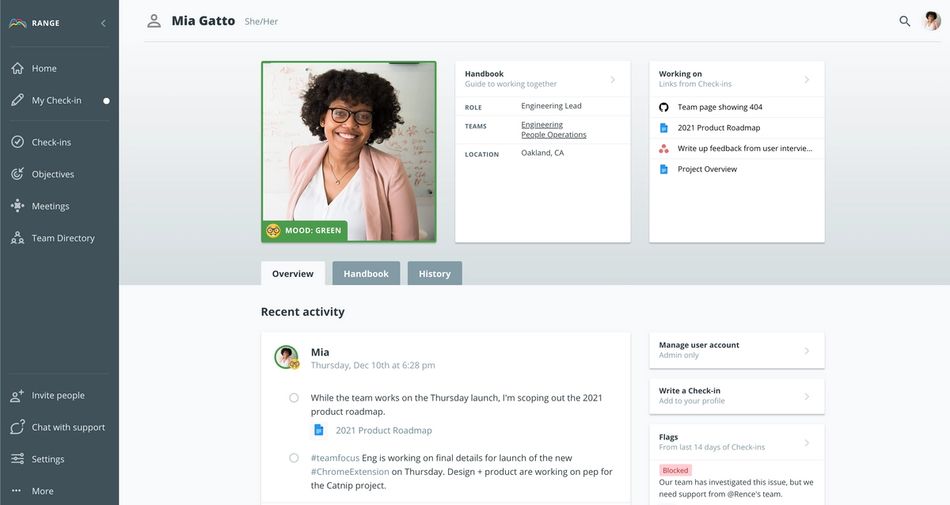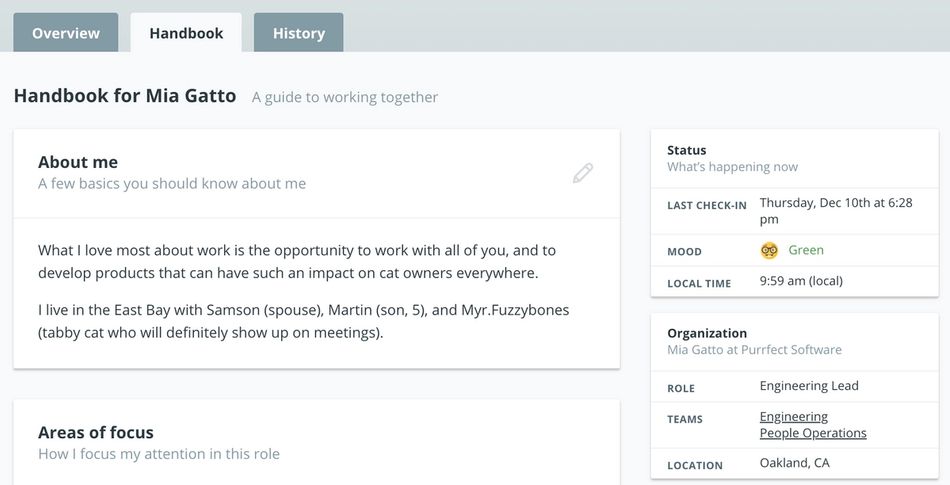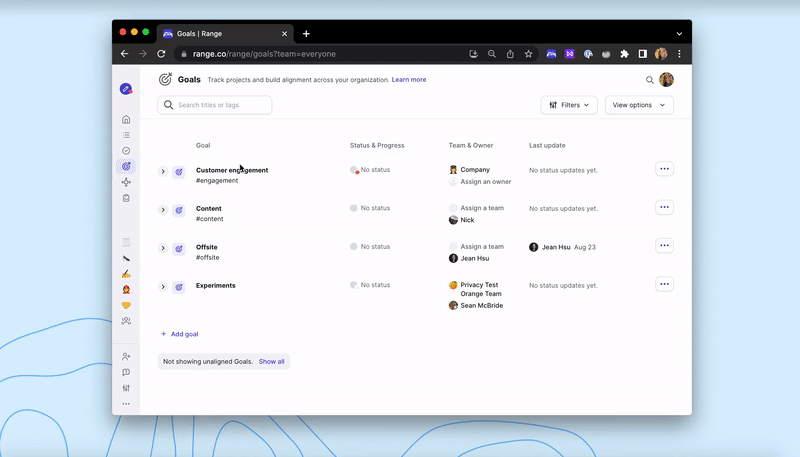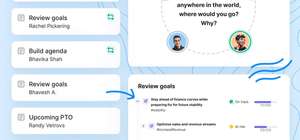
Manager user guides were hot for a minute or two, but they quickly got a bad rap.
The original intent of the “manager readme” was to set expectations and be explicit about how to best collaborate. Jay Desai was referenced in the First Round Review back in 2018 extolling their virtues:
“It’s an act of empathy, an acknowledgement of implicit power dynamics between managers and employees, and recognition that the group is made up of different people with distinct styles.”
The thinking being that leaders have unspoken beliefs about how their team should behave and interact that would be better made explicit. Furthermore, these leaders have developed practices and working styles over the years, which they find effective, but which might be arcane or make some people uncomfortable.
In the absence of being explicit, team members are left to pick up on these beliefs and preferences through a combination of trial and error, water cooler conversations, or by (gulp) asking. Rather than place the onus on the team to divine what their manager wants, readmes allowed managers to share their beliefs, values, and expectations, setting a foundation for better collaboration, and a more effective team.
This sounds good on the surface, but when this concept was introduced to me at a First Round CEO event, I bristled. My first experience with something like this had been at Google, where a well-known executive kept a text file on how best to work with him. The gist most people took away from his document was: “I’m not an asshole, I’m Swiss. Sorry if I hurt your feelings.” (Spoiler: there are a lot of very nice Swiss people who are a delight to work with.)
And herein is the core problem. While they sound nice in theory, these manager readmes can quickly become a way to excuse bad behavior. Instead of creating empathy, they cement a fixed mindset, a sense that it’s my way or the highway. This mindset, and the behavior it leads to, undermines psychological safety and reinforces traditional managerial models where employees exist to serve their leaders, as opposed to leaders being responsible for creating an environment where everyone can be successful
Furthermore, as Camille Fournier — author of The Manager’s Path — points out, this process often becomes the “Dunning-Kruger of self-awareness”:
“If you’ve gone through any deep coaching, self-awareness practice, or therapy, what you learn over time is how hard it is to be 100% honest about yourself and your motivations. If you’ve gone through very little of that, well, you are almost certainly in deep denial about your behaviors and how well they actually reflect your conscious beliefs.”
So, with this as a backdrop, today we launched a user guides feature for Range, called Handbooks.
Handbooks appear on your Range profile and provide a personal briefing of sorts, a blueprint for who you are and how you like to work. They let you share a bit about yourself, what you work on, and how you like to work. It’s an opportunity to share important details which aid collaboration, such as how you best like to communicate and perhaps some details about your working situation — I live in a loft, which isn’t a great fit for a 9 month old who loves to scream like a banshee while I’m trying to have serious conversations.
These handbooks look very similar to the manager readmes described above, but there is a fundamental difference that changes the tone and tenor of the process. By encouraging everyone to do it — not just managers — we aim to help teams deepen their connections and allow them to shape culture collectively.
More about why you should have a personal user manual for work.
When everyone shares a bit about their situation and preferences, it helps everyone go from “I’m on a team” to “I know my team.” It empowers each individual to clarify how they work best. And it empowers the team with a deeper understanding for one another, which provides the foundation of belonging critical for high performance teams.

With this information you might learn that a teammate is always offline mid-afternoon because they have to pick up their kid from school, and not just spurning your code review. Or you might find that a designer you work with really prefers email to Slack because it helps them get into the deep flow state needed to do complex design work.
All this is in service of cultivating real empathy. You get to know more about your teammates, not just try to shoehorn yourself into a mold that your manager desires.
To make the handbook feel more alive, Range brings in links to things you’ve been working on recently and shows the answers to related team-building questions. Individuals and work are always changing, so it’s easy to update — you get to gradually build your profile over time. It becomes a living record of your history at your company.

This kind of context about your teammates is helpful at the best of times, whether you’re new to a team and trying to get up to speed with “all the things”, keeping up with people in remote offices you don’t get a chance to see as often, or just reminding yourself that you work with other humans. But in 2020 when so many of us are working from home — sometimes with kids, roommates, or sub-optimal work spaces — it becomes vital. We’ve found it a critical tool in supporting team resilience, and in turn, team effectiveness.
As the old adage says, knowledge is power. But knowledge can also empower. By better understanding your team’s home situation, working hours, and communication preferences, we can build trust in ways that lead to more inclusive and more engaging teams.








